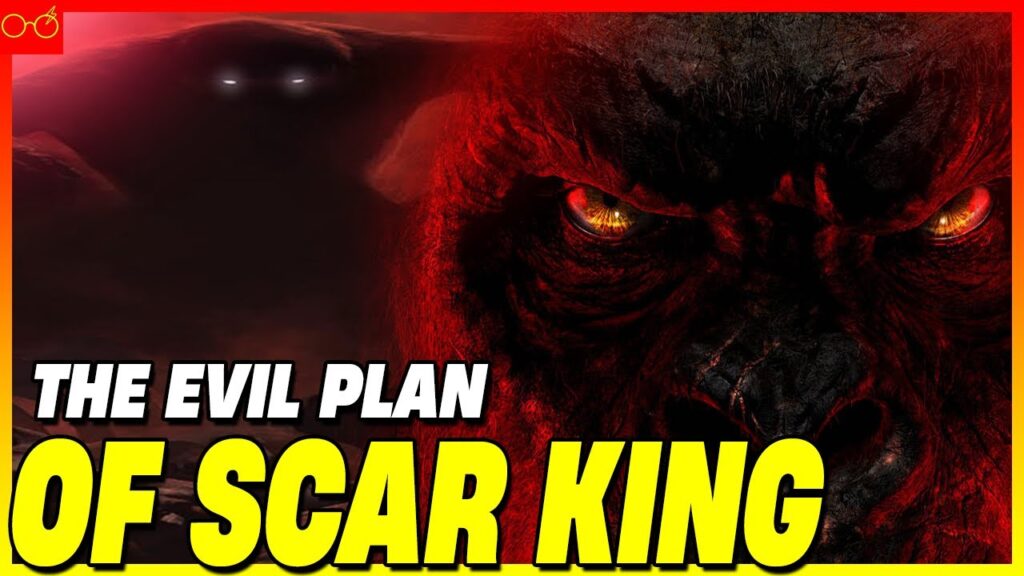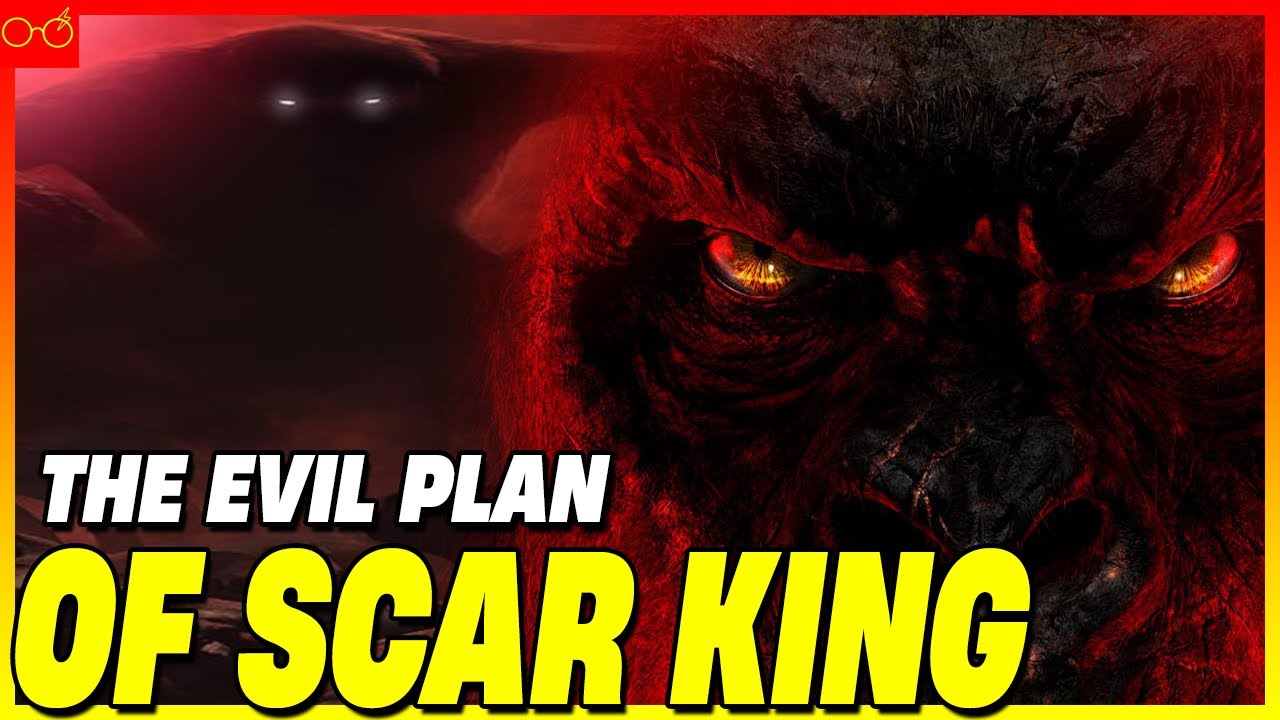
Why is Scar Evil? Unpacking the Villainy of The Lion King’s Antagonist
Scar, the antagonist from Disney’s *The Lion King*, is one of the most memorable and chilling villains in animated film history. But why is Scar evil? The answer is complex, woven from threads of jealousy, ambition, and a deep-seated sense of inadequacy. This exploration delves into the motivations, actions, and psychological makeup that contribute to Scar’s villainy, examining the factors that transformed a potentially complex character into a symbol of malevolence.
The Roots of Scar’s Evil: Jealousy and Inferiority
A primary driver of Scar’s descent into evil is his intense jealousy of his brother, Mufasa. Mufasa is the strong, beloved, and rightful heir to the Pride Lands. Scar, on the other hand, is physically weaker, less charismatic, and destined to remain in his brother’s shadow. This perceived inferiority festers within him, breeding resentment and a burning desire for power. The very name ‘Scar,’ thought to be self-inflicted after a fight, is a permanent reminder of his perceived shortcomings. He feels cheated of his birthright, believing that he is more intelligent and deserving than Mufasa.
This jealousy isn’t just about power; it’s also about recognition and love. Mufasa is revered by the Pride Lands’ inhabitants, while Scar is often dismissed or even mocked. He craves the respect and admiration that Mufasa enjoys, and his inability to attain it fuels his bitterness. He believes that becoming king will finally grant him the validation he desperately seeks.
The Allure of Power and the Willingness to Betray
Scar’s ambition is not simply about ruling; it’s about control. He desires absolute power over the Pride Lands and its inhabitants. This lust for control manifests in his willingness to betray his own family, including his brother and nephew, Simba. The murder of Mufasa is a pivotal moment, showcasing the depths of Scar’s depravity and his utter lack of remorse. He manipulates Simba, convincing him that he is responsible for Mufasa’s death, driving the young prince into exile. This allows Scar to seize the throne and implement his tyrannical rule.
Furthermore, Scar’s alliance with the hyenas highlights his opportunistic nature and his willingness to align himself with those considered outcasts. He exploits their hunger and desperation, promising them a better life in exchange for their loyalty. However, this alliance is purely transactional; Scar views the hyenas as expendable pawns in his quest for power. [See also: The Lion King: A Study in Leadership]
Scar’s Tyrannical Rule: A Kingdom in Decline
Scar’s reign is characterized by mismanagement, neglect, and a blatant disregard for the well-being of the Pride Lands. He overhunts the land, leading to a severe food shortage and ecological imbalance. The once vibrant and prosperous Pride Lands become barren and desolate under his rule. Scar’s focus is solely on maintaining his power, and he is indifferent to the suffering of his subjects. He embodies the classic image of a corrupt and incompetent ruler, prioritizing his own selfish desires above the needs of his kingdom.
The hyenas, emboldened by Scar’s rule, run rampant, further exacerbating the problems facing the Pride Lands. They terrorize the other animals and contribute to the overall decline of the ecosystem. Scar’s inability to control the hyenas demonstrates his lack of leadership skills and his flawed judgment in choosing allies. He creates a chaotic and oppressive environment, where fear and desperation reign supreme.
Psychological Analysis: Narcissism and Sociopathy
A psychological analysis of Scar reveals traits consistent with narcissism and sociopathy. He exhibits a grandiose sense of self-importance, a lack of empathy, and a manipulative nature. Scar believes he is superior to others and deserving of special treatment. He is incapable of understanding or caring about the feelings of others, viewing them as mere instruments to achieve his goals. His manipulation of Simba is a prime example of his sociopathic tendencies.
Scar’s charm and intelligence are often used to mask his true nature. He is a master of deception, able to convince others of his sincerity while secretly plotting their downfall. This makes him a particularly dangerous and insidious villain. His ability to manipulate situations to his advantage is a key factor in his success in seizing the throne. Why is Scar evil if not for his deeply rooted psychological issues?
Scar’s Downfall: The Consequences of Evil
Ultimately, Scar’s evil actions lead to his own demise. Simba’s return and challenge to Scar’s rule represent the restoration of order and justice. The battle between Simba and Scar is not just a physical confrontation; it is a symbolic struggle between good and evil. Scar’s lies and manipulations are exposed, and his hyena allies turn against him, recognizing his betrayal.
Scar’s death at the hands of the hyenas is a fitting end, reflecting the consequences of his choices and the cyclical nature of betrayal. He is consumed by the very forces he sought to control, highlighting the futility of his ambition and the self-destructive nature of evil. Why is Scar evil even in his final moments? He refuses to accept responsibility and continues to blame others for his misfortunes.
The Enduring Legacy of Scar’s Villainy
Why is Scar evil so captivating to audiences? Scar remains a compelling villain because of his complex motivations and his ability to evoke a sense of unease and dread. His villainy is not simply about power; it’s about the corrosive effects of jealousy, insecurity, and a lack of empathy. He serves as a cautionary tale about the dangers of unchecked ambition and the importance of integrity and compassion.
Scar’s actions have lasting consequences, not only for the Pride Lands but also for the characters who survive him. His betrayal and tyranny leave deep scars, both literal and metaphorical. The restoration of the Pride Lands under Simba’s rule represents a triumph over evil, but the memory of Scar’s reign serves as a reminder of the fragility of peace and the constant need for vigilance. Scar’s presence in *The Lion King* elevates it beyond a simple children’s story, turning it into a profound exploration of morality, power, and the enduring struggle between good and evil. He embodies the darkness that can reside within even the closest of relationships, making his villainy all the more impactful. Why is Scar evil? Because he chose to be. [See also: The Themes of Justice and Redemption in The Lion King]
In conclusion, understanding why is Scar evil requires a multifaceted approach. It involves examining his personal history, his psychological makeup, his actions, and their consequences. He is a complex and nuanced villain, whose motivations are rooted in deep-seated insecurities and a relentless pursuit of power. His story serves as a reminder of the destructive potential of envy, ambition, and a lack of empathy. The question of why is Scar evil is ultimately answered by his choices, which reveal a character consumed by darkness and driven by a desire for control at any cost.
The enduring popularity of *The Lion King* and the fascination with Scar’s character demonstrate the power of storytelling to explore complex moral themes. Scar’s villainy is not simply a plot device; it is a reflection of the darker aspects of human nature. By understanding the motivations and consequences of his actions, we can gain a deeper appreciation for the importance of empathy, compassion, and the pursuit of justice. The analysis of why is Scar evil provides an insightful perspective on the timeless battle between good and evil, and the choices that shape our destinies.

